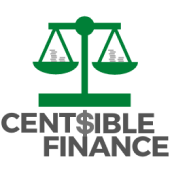
Smaller stocks, larger stocks, in-the-middle stocks, even the bond markets are down this year… Most of them by double digits. Besides the real estate investors, for the most part, everyone is feeling anxious about their investments. To put to boot, inflation is above 8% right now. Last month, gas prices in my neighborhood was around $3.20. Last week, they were around $4.50. According to Statista, in California, prices were approaching $6. But I’ve even heard worse. So, what should you do? Keep investing (and do so in exchange-traded funds (ETFs) or mutual funds? Readjust your portfolio allocation? Sell everything? Stop investing? What I can tell you is the answer depends. Everything isn’t black and white. Priorities For some of us, the priority may be to build up our savings account for emergencies. If that’s you, over and above investing, focus on gradually saving at least $1,000. In case of an emergency repair or unexpected expense, $1,000 will help you avoid adding debt to your name, even if whatever the unexpected expense will cost you more than a grand. Plenty of financial experts recommend saving at least $1,000 for this reason. For some of us, the priority may be to get out of debt (besides the mortgage). If that’s you, that means you have at least $1,000 saved, and now, you can work on paying off your smallest debt first while you continue to make your minimum payment on any others. If your investments are yielding you a 5% return, although that’s better than losing money (especially in a stock market like this), if the interest rate on your debt(s) is 6%, 8%, 10%, or even more, in general, it’d actually be more financially beneficial for you to focus more on paying off debt. For some of us, the priority may be to establish our rainy day savings account. If that’s you, focus on gradually saving up enough for three to six months’ worth of living expenses. Having rainy day savings will help you God forbid a pay cut or drastic change to your lifestyle unexpectedly happens. Generally, if you have just one source of income, meaning you’re single or the only person with a job in your household, six months’ worth of savings is more ideal. If you have two or more sources of income, three months is okay. It really depends on your comfort level. But the point is, having a rainy day savings account is important for all of us. If we come across any sort of hardship, the last thing we’d want to do is borrow from our retirement or investment accounts. One of the main reasons is because of potential tax and additional penalties that would come along with that. Saving for emergencies and rainy days is different from saving for your retirement and investing. Always make sure you have savings for the unexpected. Invest or Not? Now, if you’re at the point where you have no debt outside your home and you have an established rainy day savings, in a market like this, deciding whether to invest or not depends on your situation, as I said before. During a typical week, I work as an editor for a publishing company that sells investment ideas. So, I’ve had enough time around people who’ve spent their careers investing and trading in the markets. And they, too, are feeling the pain. But have they stopped doing what they’ve always done? Nope. Since I serve as a financial coach and not an advisor, it wouldn’t be my place to give you advice on what to do with money you’re considering investing. But typically, it’s wise for us as investors to only invest with money we can afford to invest in the first place. In other words, if it’s money we’re counting on to pay the bills, buy a house, or spend on an emergency, we should think twice about whether we should invest with it. What I Do Personally, that’s the mindset I’ve had over the years as I’ve invested. And it helps me to know that thinking long term has its benefits. According to this CNBC article, on average, the S&P 500 (a benchmark index of the largest U.S. stocks’ performance) has returned about 6% annually over the past 20 years. But if you had missed the top 20 days during this time period—by selling during the bad times, instead of holding them—your actual return would only be 0.1%. I know that I’ll continue to invest, regardless of how badly most investment vehicles are tanking right now. Maybe it’s because I believe wisdom (including where finances are concerned) has its rewards. Or because I understand not to invest what I cannot afford to lose. Or because I’ve learned that steady plodding brings prosperity (Proverbs 21:5). But I’d really like to think that it’s because, despite this mess of unbelievable gas prices, expensive groceries, and devalued investments, I have a peace. And it comes from God. I’ve learned to put more trust in my God than I do in my bank account. I’ve learned that He is the only reason why I can do what I do and have what I have. I’ve learned that He is my Provider. So, I know that, even when circumstances change, He is in control. I encourage you to trust in this, too. Trust that God will take care of you if you let Him. Trust that God knows. And trust that everything will be okay. Because He never fails.
With gratitude,

Melody C. Stampley, MS
Writer, Editor, Financial Coach

